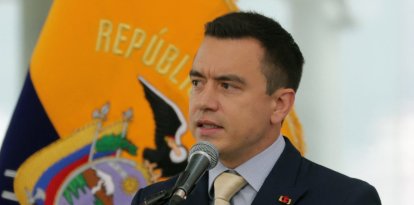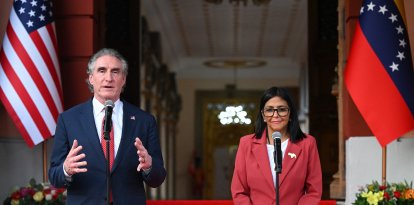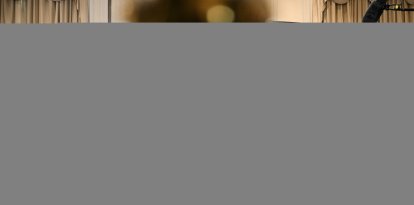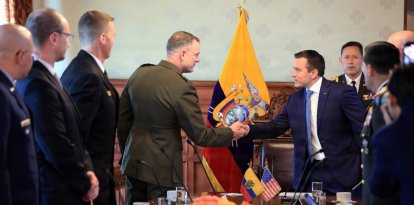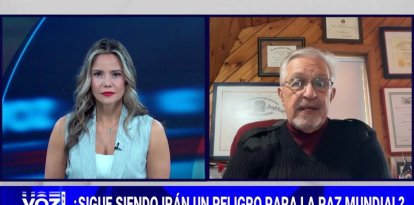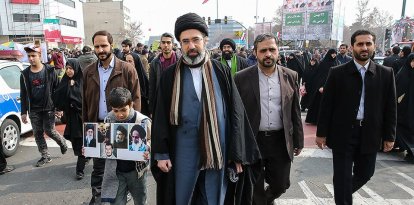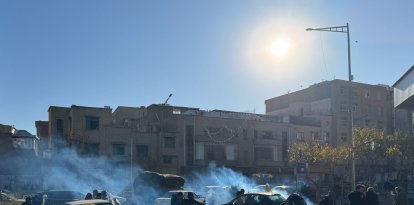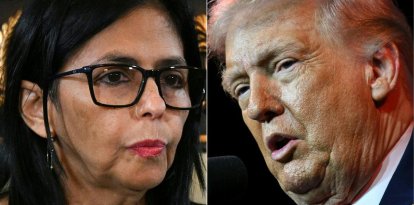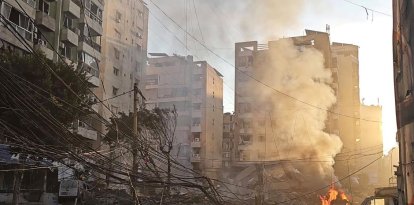G7 summit kicks off with call for negotiations and ‘de-escalation’ of war in the Middle East
Member countries will make a joint statement that could call on Israel and Iran to de-escalate tensions in the region, as well as support Israel in the name of its "right to defend itself."
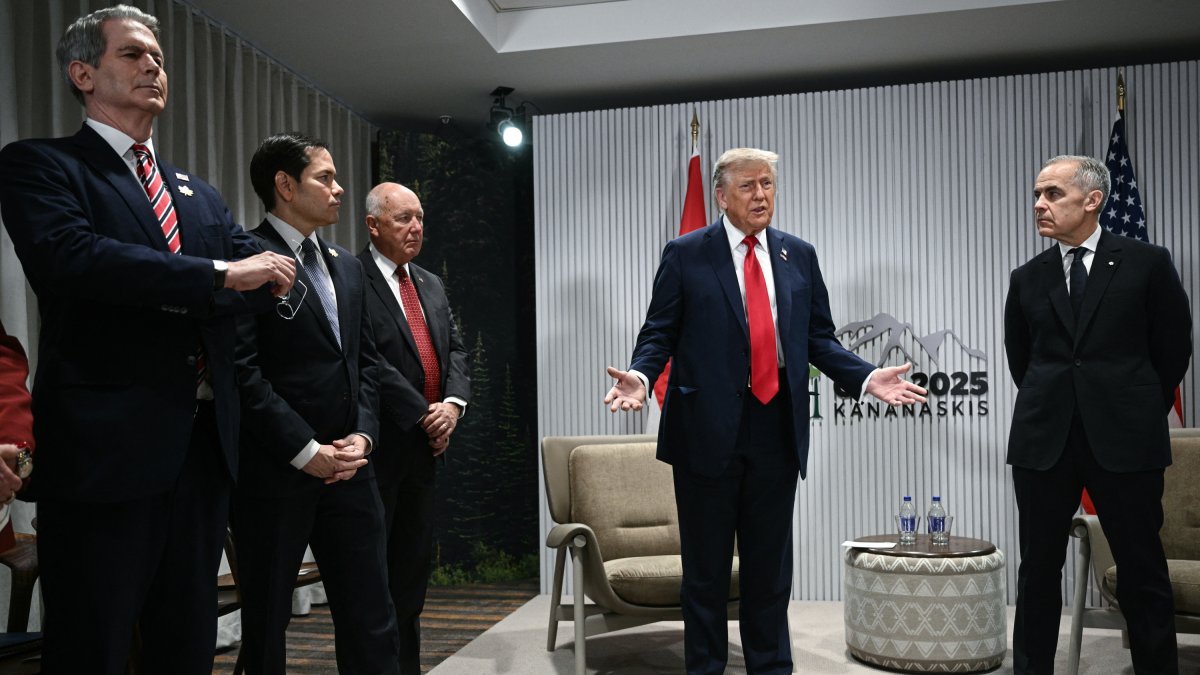
G7 summit in Canada
Leaders of the G7 countries addressed Monday from Canada the escalating conflict between Israel and Iran as it enters its fourth day. The three-day summit in the mountain town of Kananaskis marks the return of Trump's diplomatic calendar.
For his part, Canadian Prime Minister Mark Carney said Monday that the world is "more divided and more dangerous" than at previous summits, citing the G7 meetings after the fall of the Berlin Wall and the 9/11 terrorist attack in the United States.
For this summit, Mark Carney designed an agenda to minimize disagreements among G7 member countries, which include: U.K., Canada, France, Germany, Italy, Japan and the U.S.
However, Israel's attack on the Iranian regime on Friday has changed the agenda and Canada is now looking to make a joint statement with several countries. The statement could call on the parties to de-escalate the warlike tension or back Israel in the name of its "right to defend itself" against the dangerous Iranian nuclear program.
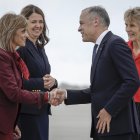
World
Canada hosts G7 in Alberta, where talk of independence and joining the US lingers
Carlos Dominguez
A call for "de-escalation" and negotiation
From the G7 summit, Donald Trump warned Iran on Monday to return to the negotiating table "before it's too late."
The U.S. president, who has praised Israeli strikes, said he believes a negotiated settlement remains "achievable."
"They have to come to an agreement, and it's painful for both sides, but I would say Iran is not winning this war, and they should have a dialogue, and they should have a dialogue right away, before it's too late," Trump told reporters while meeting with Mark Carney.
Another journalist asked Trump what it would take for the United States to get involved militarily in this conflict.
"I don't want to talk about that," the president replied flatly.
For his part, British Prime Minister, Keir Starmer said G7 leaders share concerns about Iran's nuclear program, but that "there is definitely a focus on how to de-escalate this situation and that will be a central issue" as they move forward in their talks.
"I think there is a consensus in favor of de-escalation," Starmer told reporters at the group's leaders' summit.
"But the risk of the conflict escalating is clear, I think, and the implications - not just for the region, but globally - are really immense, so the priority must be de-escalation," he insisted.
German Chancellor Friedrich Merz noted that a text proposed by the Europeans would put the responsibility for the current conflict on Iran.
"We will stress again that Iran must never possess material that would enable it to produce nuclear weapons," he insisted.
"We will stress the legitimate right of the State of Israel to defend itself and we will also discuss possible further steps to reach a diplomatic solution," he added.
Trump says it was "a mistake" to pull Russia out of the G8
President Trump also called it a "mistake" that Russia had been expelled from the G8 in 2014 for annexing Crimea.
"The G7 used to be the G8," Trump said. "Barack Obama and a person named Trudeau didn't want to have Russia in. And I would say that was a mistake, because I think you wouldn't have a war right now if you had Russia in."
"It was a mistake in the sense that you spend a lot of time talking about Russia. And it's no longer on the table, so life gets more complicated," the chairman added.
Von der Leyen calls for more humanitarian aid for Gaza, takes a stand against Iran
European Commission President Ursula von der Leyen said Israeli Prime Minister Benjamin Netanyahu promised in a phone call Sunday to do more to bring aid to the war-torn Gaza Strip.
"I insisted and urged that the humanitarian aid that is not reaching Gaza has to reach Gaza. He promised that it will and that it will be done," Von der Leyen told reporters during the G7 summit in Kananaskis, Canada.
She said she would follow up on the pledge after the three-day G7 meeting.
She said she would try to find out, as far as humanitarian aid is concerned, "how it gets to Gaza, if it gets to Gaza" and what can be done "to ensure" that it "reaches its maximum level in Gaza."
On the other hand, Von der Leyen also said at the press conference, "Iran should certainly not have nuclear weapons."
"Of course, I believe that a negotiated solution is, in the long term, the best solution."
However, "in this context, Israel has the right to defend itself. Iran is the main source of regional instability," the head of the European Commission assured.
The sensitive tariff issue
Trump said he was optimistic about reaching a solution on trade as he met with Carney.
"I'm a (supporter) of (tariffs)," he told him. "It's simple, it's easy, it's precise, and it just works very quickly."
With the presence of Mexican President Claudia Sheinbaum, Canada has managed to rally its allies from the North American free trade agreement, T-MEC.
This could allow the leaders to begin a dialogue on their economic relations. But Ottawa does not expect major breakthroughs, according to a government source.
On the other hand, the German chancellor told reporters that with his peers from France and Italy he will seek to discuss the U.S. trade threat directly with Trump. "There will not be a solution at this summit, but we may be able to approach a solution in small steps," he said.













